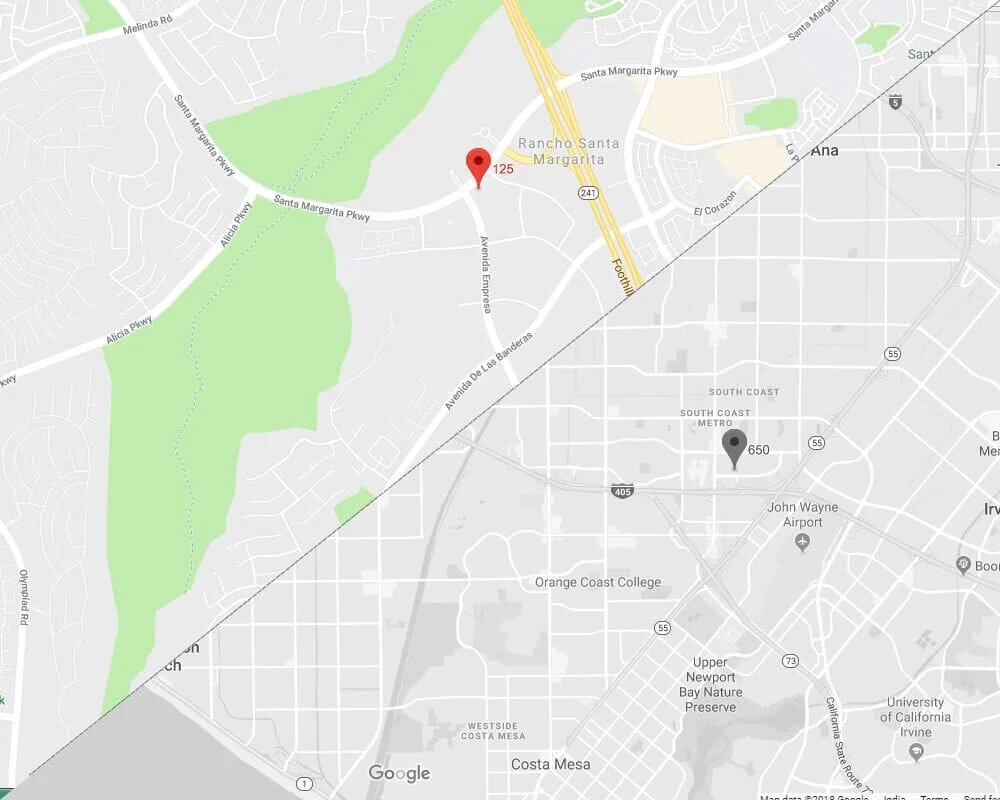Riverside Criminal Defense Lawyer

Riverside Criminal Defense Attorney
Criminal defense in Riverside, CA covers a broad scope of crimes of all levels of severity. Facing a DUI charge is much different than a high-stake white-collar crime. Regardless of how harsh the penalties are, any criminal conviction can dramatically impact and reshape your life.
When facing a criminal arrest, you need a Riverside criminal defense attorney from a law firm who can represent and advocate for you in court. Brown & Stedman LLP, have experience working in criminal law and have developed strategies to help their clients through a tumultuous time in their lives.

Can Brown & Stedman LLP, Help With My Criminal Trial in Riverside, CA?
Mr. Edwin B. Brown has been working in law for nearly 40 years, and he brings 25 years of experience from a mid-size firm where he served as a senior partner. Mr. Brown has plenty of experience working in criminal law but has also represented clients in immigration matters and work-related injuries.
Mr. Brown works with his legal partner, Michael Stedman, to provide a comprehensive defense to those suspected of criminal activity. They work to create defense solutions that optimize even the most severe of criminal charges, and they are ready to do the same for you.
Your Trusted Criminal Defense Attorney

Edwin B. Brown
Mr. Brown brings over 37 years of litigation experience, including 25 years as a senior partner. His expertise spans criminal defense, personal injury, insurance, and wrongful death. He has handled cases in the California Appellate Courts, Supreme Court, and Ninth Circuit. Mr. Brown has successfully represented clients in Riverside and across Southern California, with notable cases including KFC v. Superior Court and Van Horn v. Watson. He also assists with immigration and federal employment issues.
What Kind of Criminal Defense Can Brown & Stedman LLP, Help Me With?
Criminal law covers a lot of ground, so let’s look at some of the most common reasons people find themselves facing a criminal charge.
DUI
Despite their illegality in every state, DUIs happen every day. California is no exception, and these common crimes come with plenty of bite if the court finds you guilty in Riverside, CA. DUI charges will impact your life, and you can serve jail time for driving under the influence.
DUI occurs anytime someone drives their vehicle while under the influence of a chemical-altering substance. The most common substance is alcohol, but the police can charge you for a DUI if you have other drugs or marijuana in your system. The legal limit in California is a blood alcohol content of 0.08 or lower.
Police officers pull over people they suspect of driving under the influence and conduct an evaluation to see if they show signs of impairment. Police are then allowed to perform roadside checks to see the driver’s soberness or lack thereof. If the police have reasonable suspicion of a driver being under the influence, they may arrest the individual for a blood test.
Most DUI defenses center around the officer following all the proper procedures during the stop. Law enforcement must have probable cause to pull someone over for suspicion of DUI. The officer cannot go on a hunch or suspicion, even if they turn out to be correct.
They need to observe some action suggesting the driver is currently impaired. If the prosecution cannot prove a valid reason for the stop, then the judge can throw the entire case out.
Some people pay little mind to a DUI arrest. In truth, the penalties for a standard first-time offense are not as severe as those of other crimes, but they can still have a significant impact. You will likely have a fine between $400 and $1,000, a few years of informal probation, and a six-month driver’s license suspension. Many people just accept a first-time conviction and move on.
In truth, you should fight against any DUI charge. These convictions stay on your record and will affect your insurance rates. Additionally, any further DUI convictions will have increased penalties. You may be looking at jail time and long license suspensions.
Having a Riverside criminal defense attorney by your side can help with the process. They can examine your arrest and make sure the law enforcement agents followed all proper procedures. They can also guide you through any court appearances and explain what each step of the process entails.
Homicide
In our criminal justice system, no crime carries with it the same amount of scrutiny and media attention as a homicide. Almost every famous police procedural or courtroom drama focuses on a homicide case. In real life, these cases also carry a good deal of attention and sometimes lead to high-stakes trials.
Homicide is the general term the law uses to describe when someone kills another person. Homicide is not an official charge, and it can cover cases where there was the intention or circumstances where the killing was accidental. California law breaks homicide into two main categories: murder and manslaughter.
Murder is the higher degree of the two and carries the harshest penalties. First-degree murder is the most severe and the hardest for prosecutors to prove. First-degree murder involves the accused making a plan and premeditating the killing before carrying it out.
Prosecutors must prove the defendant planned the action before committing the crime. Convictions for first-degree murder carry a conviction of 25 to life in California.
Second-degree murder is what many people call a “crime of passion.” These killings typically occur in the heat of the moment and do not involve premeditation from the accused. Instead, the killer decided in an instant to kill someone without any preplanning. These crimes carry a penalty of 15 years to life in prison.
Manslaughter is the lower form of homicide, though the penalties for a conviction are severe. Vehicular manslaughter comes from any killing that happened with a car. The state may choose to prosecute these crimes as either a misdemeanor or felony, depending on the facts of the case.
Involuntary manslaughter occurs when someone commits an act that leads to another party’s death without any intention. For instance, an individual could shove someone without a desire to kill, but the other person falls from the push, hits their head, and dies.
Voluntary manslaughter covers any killing that was intentional but does not rise to the level of murder. These charges are often for similar cases to second-degree murder.
Having a lawyer or defense team with you during a murder or manslaughter trial is imperative. A conviction for any of these crimes will lead to your life forever changing and considerable jail time. An attorney can advocate for you in court and explain your situation. A homicide charge is not the end of the world, and a Riverside criminal defense attorney can work with you and try to keep you out of jail.
White-Collar Crimes
White-collar crime covers several offenses, mostly committed by office workers for financial gain. These crimes typically revolve around the accused using their position in a company to gain money that doesn’t belong to them. White-collar crimes are often felonies due to the financial gain the accused allegedly attained, and many of these cases end up as federal crimes since they cross state lines.
Because white-collar crimes can happen in many different ways, you need a Riverside criminal defense attorney who knows all the different ways white-collar crime manifests itself. Let’s look at a few of the most common white-collar crimes.
By far, fraud is the most common white-collar crime. Someone can commit fraud by providing false statements on financial papers or lying to someone about financial transactions. Fraud also manifests itself when an office employee withholds information they must legally disclose about a transaction. Fraud can be to benefit the individual or to help an organization or company.
Money laundering occurs when a legitimate company knowingly takes money from illicit sources. Money laundering is easiest to do in primarily cash-based businesses, such as car washes, laundromats, and restaurants. The business or an employee will take in the money and hide it with phony transactions. Money laundering is often part of organized crime, and law enforcement may have issues prosecuting the crime.
Forgery is a white-collar crime that may seem like no big deal, but law enforcement will move to prosecute any offenders. Forgery not only applies to someone signing another individual’s signature, but it can also occur when someone falsifies documents or lies about information.
Embezzlement is another common white-collar crime. Embezzlement can occur whenever someone attempts to use company funds for their desires. Those charged with embezzlement may have lied on expense reports, written bad checks, or used petty cash for personal expenses. If an employee commits embezzlement, they may be taken to civil court by their company to recoup any lost funds.
Tax fraud brought down Al Capone, and the federal government takes any tax issues seriously. These crimes often rise to the federal level, and you’ll need a Riverside criminal defense attorney ready to take the trial to federal court. You cannot knowingly lie on tax forms or try to hide income when filing taxes.
White-collar crimes may be non-violent, but the punishments for them are severe. A Riverside criminal defense attorney can help you defend yourself in court. Your attorney can argue that you didn’t commit the crime or try to negotiate a better sentence with the prosecutor.
Drug Offenses
California often looks to prosecute drug offenses, and the penalties can be severe for anyone found guilty. Drug offenses in California run the gamut from simple possession to more high-stakes crimes like manufacturing or distribution. If you’re facing any kind of drug charge, you need a Riverside criminal defense attorney on your side.
Drug offenses carry harsh penalties; any conviction will stick on your record and impact your ability to find future employment or housing. A defense attorney can attempt to avoid a conviction altogether or at least work on a plea bargain to try to avoid jail time or a felony.
Drug possession has newly reduced penalties in California, but it is still a crime you don’t want to end up on the wrong side of. If you have a larger quantity of drugs, the state may choose to prosecute you for possession with intent to sell, which carries heavy penalties.
Anyone higher up the chain of drug distribution or manufacturing will be dealing with the risk of years in prison. California takes seriously anyone involved in the drug network and will seek to put them in prison for a long time.
California Statute of Limitations Guide: Penal Code References Included
| Crime Category | Statute of Limitations | Primary Penal Code Sections |
|---|---|---|
| Infractions & Most Misdemeanors | 1 year | PC 802(a) |
| Sexual Exploitation by a Therapist/Physician | 2 years | PC 803(f)(1) |
| Most Felony Offenses | 3 years | PC 801 |
| Misdemeanors Against Minors Under 14 | 3 years | PC 801.1(a) |
| Felony Fraud; Financial Crimes Against Elderly/Dependent Adults; Public Misconduct | 4 years | PC 801.5, PC 803(c) |
| Domestic Violence (Corporal Injury to Intimate Partner); Non-Financial Crimes Against Elderly/Dependent Adults | 5 years | PC 803.7 |
| Felonies Punishable by 8+ Years in Prison | 6 years | PC 800 |
| Sex Crimes Requiring Registry; Failure to Register as Sex Offender | 10 years | PC 801.1(b), PC 290.018 |
| Child Sexual Abuse Felonies | Until victim’s 40th birthday | PC 803(f)(2) |
| No Statute of Limitations | None | PC 799 (Murder), PC 799.5 (Certain Sex Crimes), PC 209.5 (Aggravated Kidnapping) |
For authoritative information, you can refer to the California Penal Code, particularly sections 799 through 803, which detail these limitations.
How Do Plea Deals Work In Riverside?
Not every criminal trial goes to court for a trial by jury. In fact, most cases end up with a deal between the prosecutors and defense before the trial starts. Prosecutors normally deal with many cases at a time and want to reach a plea bargain in any case they can to free up time to deal with other matters.
In a plea deal, the defense and prosecutors meet to discuss acceptable terms for both parties. The prosecutor will want the defendant to face some punishment for the crime, while the defense attorney will try to argue for the lowest punishment possible.
If the two sides agree and the defendant signs off on the agreement, the two sides will enter into a plea bargain. In a plea bargain, the defendant admits guilt and forgoes the trial. In exchange, they will have a reduced charge or sentence.
While you will still have to admit guilt in the case, you can secure a better outcome than if you lost at trial. Attorneys may push you to accept a plea deal if they believe you don’t have a solid chance of winning in open court. Even in open-and-shut cases, the prosecutor will likely be willing to make a deal to speed the process up.
California Felonies vs. Misdemeanors
Every criminal charge falls into the category of a felony or a misdemeanor. On the surface, the main difference between the two crimes is the prison sentence length. Misdemeanors in California are any crime with a conviction under one year, while felonies are any crime with a prison sentence of over a year.
Felony convictions can have devastating effects on anyone convicted of them. A felony conviction will follow you for much of your life. When filling out an application for employment with a company, they may ask you to disclose any previous felony arrests. You will also need to disclose prior felonies when you attempt to rent a house. Felonies will limit your options in ways misdemeanors won’t.
A Riverside criminal defense attorney can help potentially mitigate these issues. With the right plea bargain, you may be able to convince the prosecutor to reduce a felony sentence to a misdemeanor. Attorneys can also attempt to assist you with expunging a sentence from your record to help give you some rights back following a conviction.
Do I Need An Attorney When Dealing With a Criminal Trial in Riverside?
California and federal law allow an individual to advocate for themself in court in any criminal or civil matter. Almost everyone with legal knowledge will suggest anyone under suspicion of committing a criminal act hire an attorney to handle the case. Attorneys know the law much better than a layperson and understand how to act in court and when negotiating with the prosecution.
In criminal matters, the state will provide an attorney to anyone charged if they cannot afford one. While it may be tempting to take on a public defender, these lawyers do not have the time to treat each case with the care it deserves. Public defenders are good at their jobs but have too much of a caseload to dive into a spirited defense.
Private attorneys, on the other hand, can make your case a top priority from the jump and work with you every step of the way. A Riverside criminal defense attorney like one from Brown & Stedman will have the time to formulate a proper defense and get to know the details of your case.
What Are Some Common Defenses For a Criminal Charge?
One of the most common defenses for a criminal charge is showcasing a breach in protocol by the police. Your attorney can argue the police did not have probable cause when they discovered evidence, or they may have failed to read you your Miranda Rights. In these cases, a judge may move to dismiss the entire case or suppress evidence since law enforcement violated your rights.
Similarly, entrapment is another legal defense. Undercover officers have certain guidelines they must follow when conducting things like controlled drug buys. They cannot force you to commit a crime and then arrest you for it. Law enforcement is allowed to persuade you within reason, but they cannot plant the entire idea of committing a crime into someone’s head.
Mistaken identity is another popular defense. Witnesses often get a very short look at the offender, and their memory might fail them when it comes to describing the person. In addition, police lineups also have a chance to produce false positives.
When it comes to murder, self-defense is a consistent justification in the legal system. Every Riverside resident is allowed to defend themselves from an attack on themselves or their loved ones. If you were just trying to defend yourself against a violent attack and you killed a person in the process, your defense attorney can argue these facts in court to try to save you from a murder charge.
FAQs
Q, What Happens If I Am Convicted Of A Crime In California?
A. A conviction can lead to penalties such as fines, probation, jail or prison time, and other consequences, depending on the severity of the crime.
Q. What Is The Statute of Limitations For Criminal Offenses In California?
A.The statute of limitations for criminal offenses in California varies by severity. Most misdemeanors must be charged within 1 year. Most felonies have a 3-year limit, but serious crimes like murder have no time limit. Certain offenses involving minors or financial fraud may extend these periods. Your criminal defense lawyer will know the relevant deadlines for your case.
Q.What Is A Plea Bargain In California?
A. A plea bargain is an agreement between the prosecution and defense where the defendant agrees to plead guilty to a lesser charge or accept a reduced sentence in exchange for avoiding trial. A criminal lawyer can negotiate the best plea deal for you.
Q. Can I Get My Criminal Record Expunged In California?
A. In some cases, you may be eligible to expunge your criminal record in California, particularly for misdemeanor convictions or qualifying felonies.
Contact Brown & Stedman LLP: An Experienced Criminal Defense Attorney
Criminal conviction punishments range from slaps on the wrist to life behind bars. No matter the punishment, you should treat any criminal charge seriously. If you or someone you know is dealing with a criminal case, we at Brown & Stedman LLP, can help. Contact us today for a free consultation.
Brown & Stedman LLP Office:
Rancho Santa Margarita Criminal Defense Office
22342 Avenida Empresa
Suite 125
Rancho Santa Margarita, CA 92688
Telephone: 949-459-5900
Fax: 949-713-7722
Map & Directions
About Riverside, CA
Riverside is located in Southern California’s Inland Empire, between Los Angeles and Palm Springs. As the county seat of Riverside County, it’s a busy city with a mix of history and modern life. The city is known for the Mission Inn, beautiful parks, and its location along the Santa Ana River, with views of the San Bernardino Mountains. Riverside is well-connected, with easy access to major highways like the 91 Freeway. It’s a growing city, offering a great place to live, work, and explore.
Learn More About What We Can Do To Help
We invite you to call us at 949-459-5900 to schedule your free initial consultation. You can also reach our firm by contacting us online.
Tell Us About Your Case
Each time we take a case, we look at the big picture: What can we do to best help solve the problem as efficiently as possible. We use our experience and creativity to propose solutions that allow you to put your legal matters behind you.
© 2026 Brown & Stedman LLP. All rights reserved.









